[amor fati ☕️] vol.1 visual escapism

A R T

Lethabo Huma describes herself as a ‘digital painter’ from Pretoria, South Africa. She uses her work as a mirror to her emotional responses to life experiences. “I get a lot of inspiration from things I see that I can relate to or resonate with at that moment in my life. All of my work makes up different parts of myself. Creating has always been a time for me to vent, evaluate, realize and heal.”

Melt by 孙影. No description from the artist on the meaning of this painting but here’s my take: what would happen if defiant and intelligent women across centuries all met up to talk shop in their rightful seat at the table.
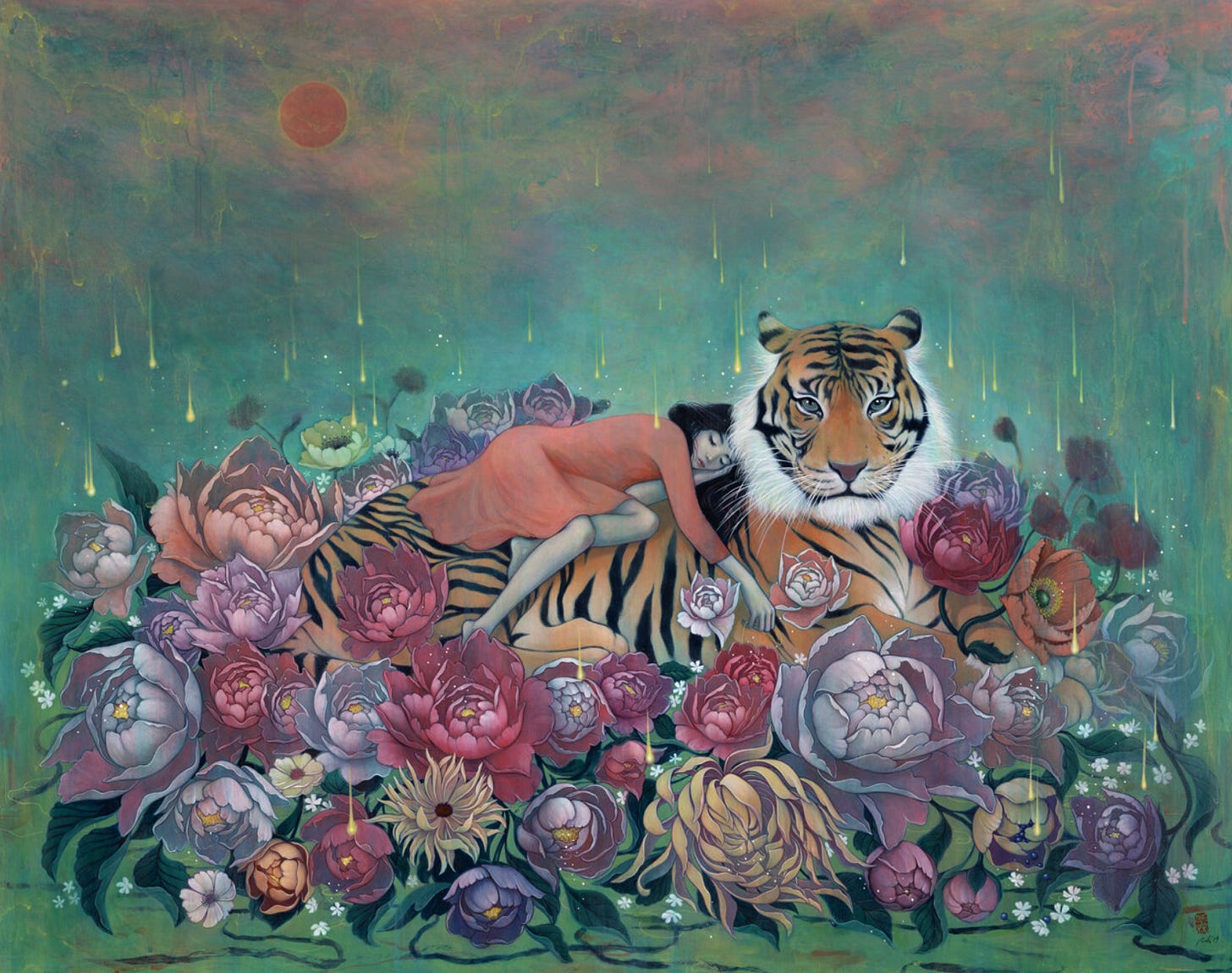
A prevalent theme in Stella Im’s work seems to be that of quiet resilience, and the portrayal of strength inherent in softness.
In her words: “Older, traditional Korean culture also considers it a great virtue to tough things out quietly, to have that strong core value with which to weather all the hardships – to have that unmoving, steady inner core, to weather and survive the hardest times. This is also a huge part of mothers in Korea. They don’t look it but they’re strong. They call it the “ajumma (aunties) power”.
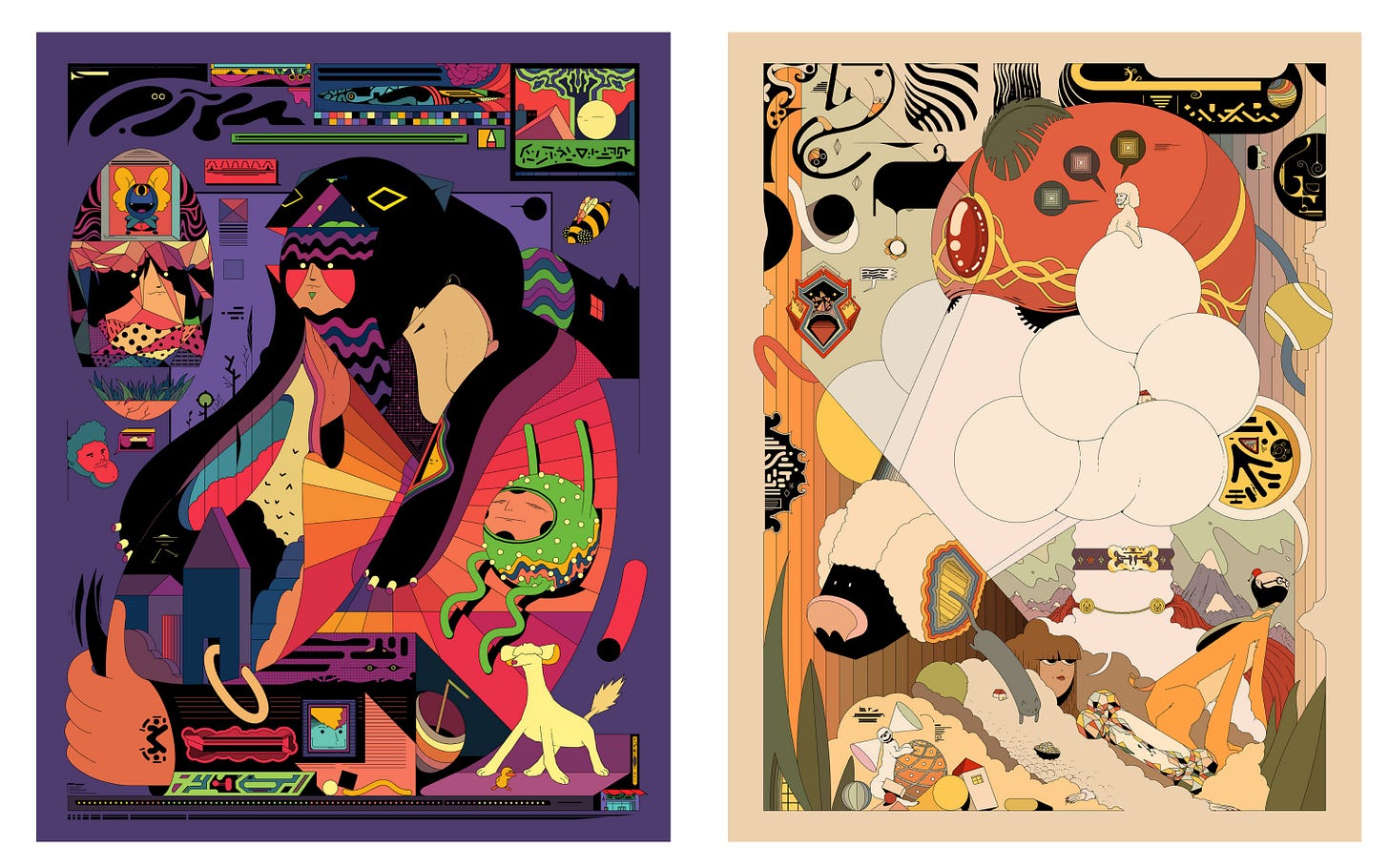
Ori Toor is an illustrator and video animator based in Tel Aviv. His motto: never make preparatory sketches or forecasts, always improvise. Through psychedelic visuals, Ori Toor develops his practice on the exploitation of the random and the unexpected.
P H O T O G R A P H Y
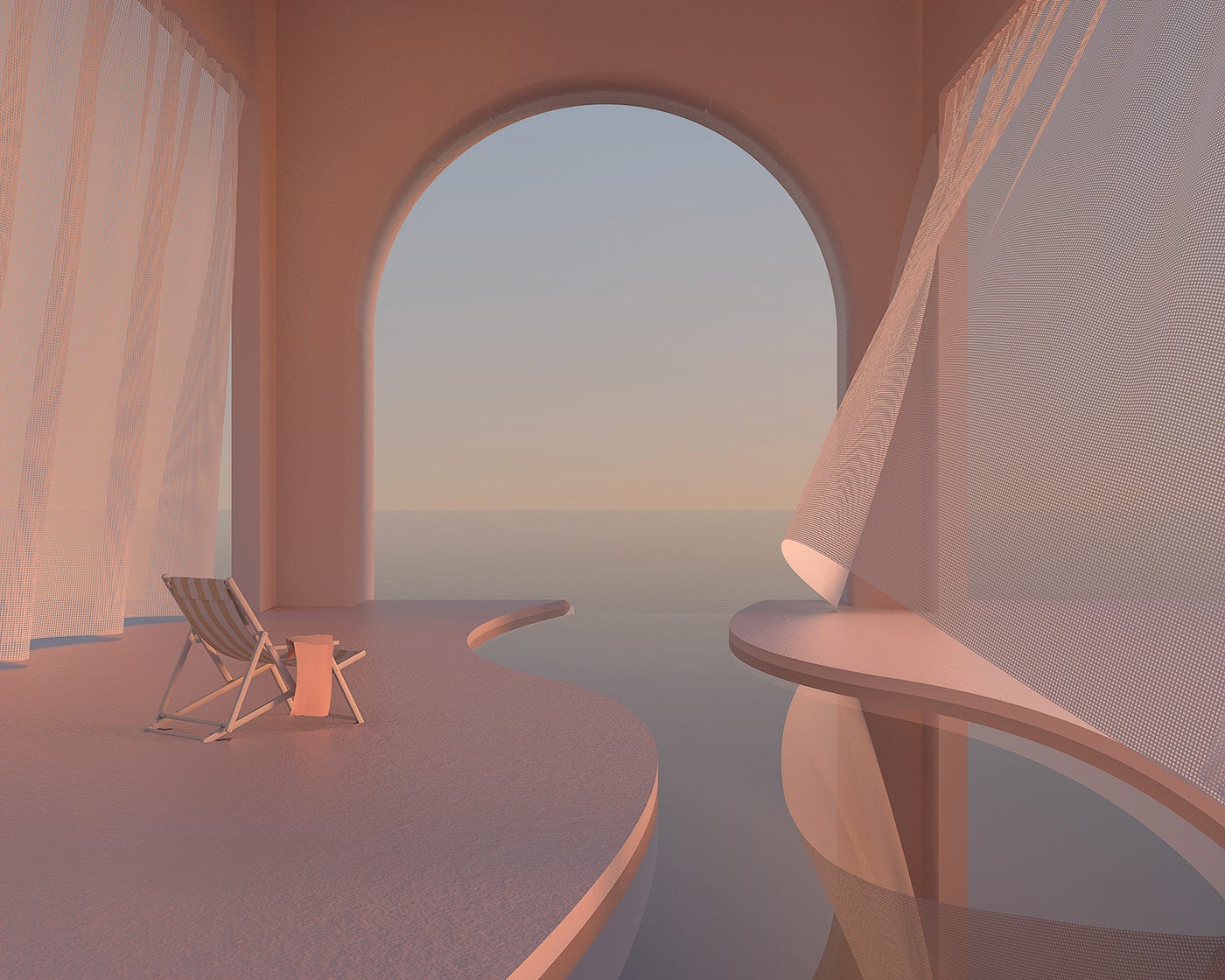
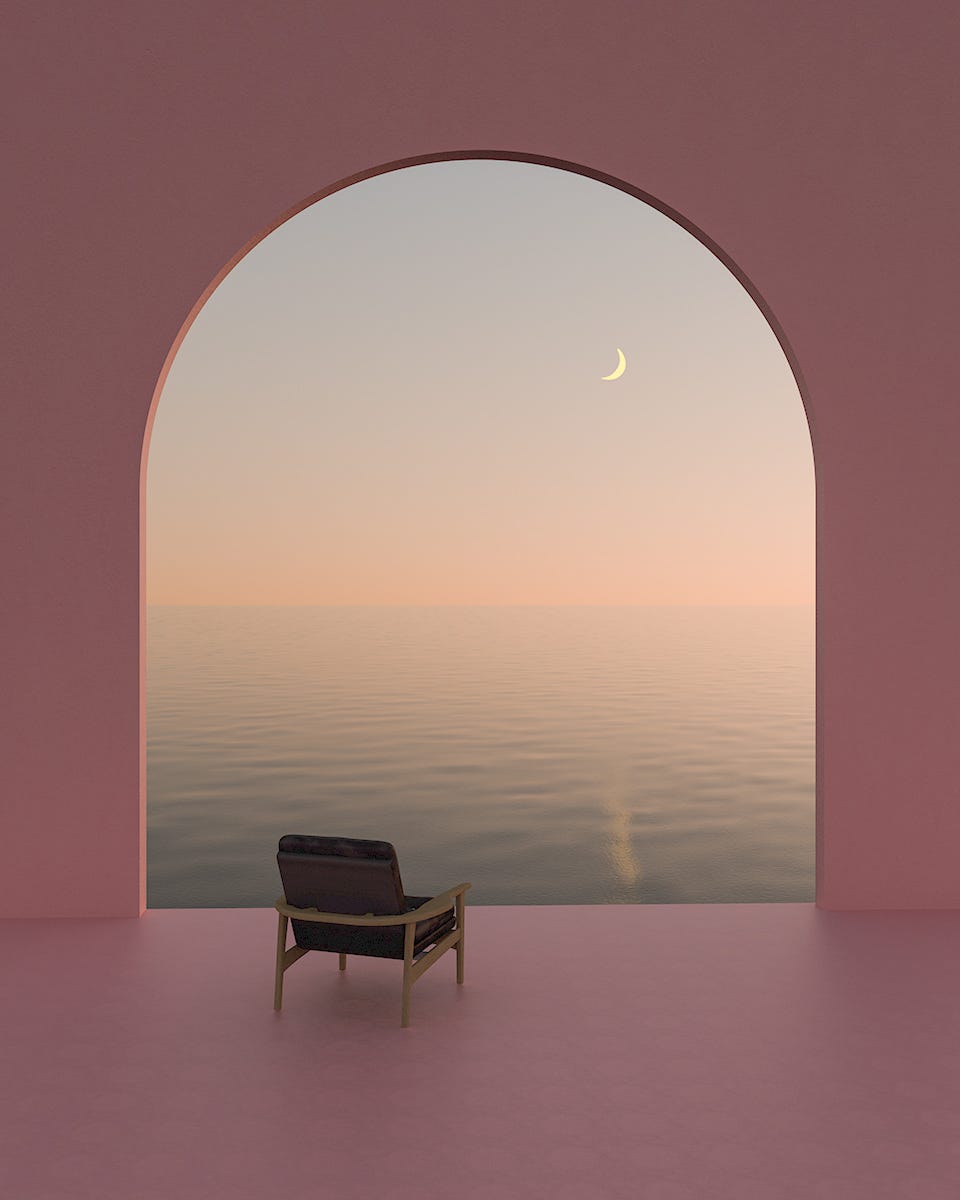
Somewhere in the world by Minjin Kang and Mijoo Kim.
The pair are interested in exploring the fine line between reality and fantasy. Through the language of colors, they seek to empower viewers to travel to those spaces, focus on dressing hyperreal color to reality, and to further challenge the boundaries of their imagination. Not gonna lie, visual escapism seems especially delightful these days.

Blue Flowers of Hitashi Seaside Park in Japan

my preferred state of being: on chapter 16 in an excellent book
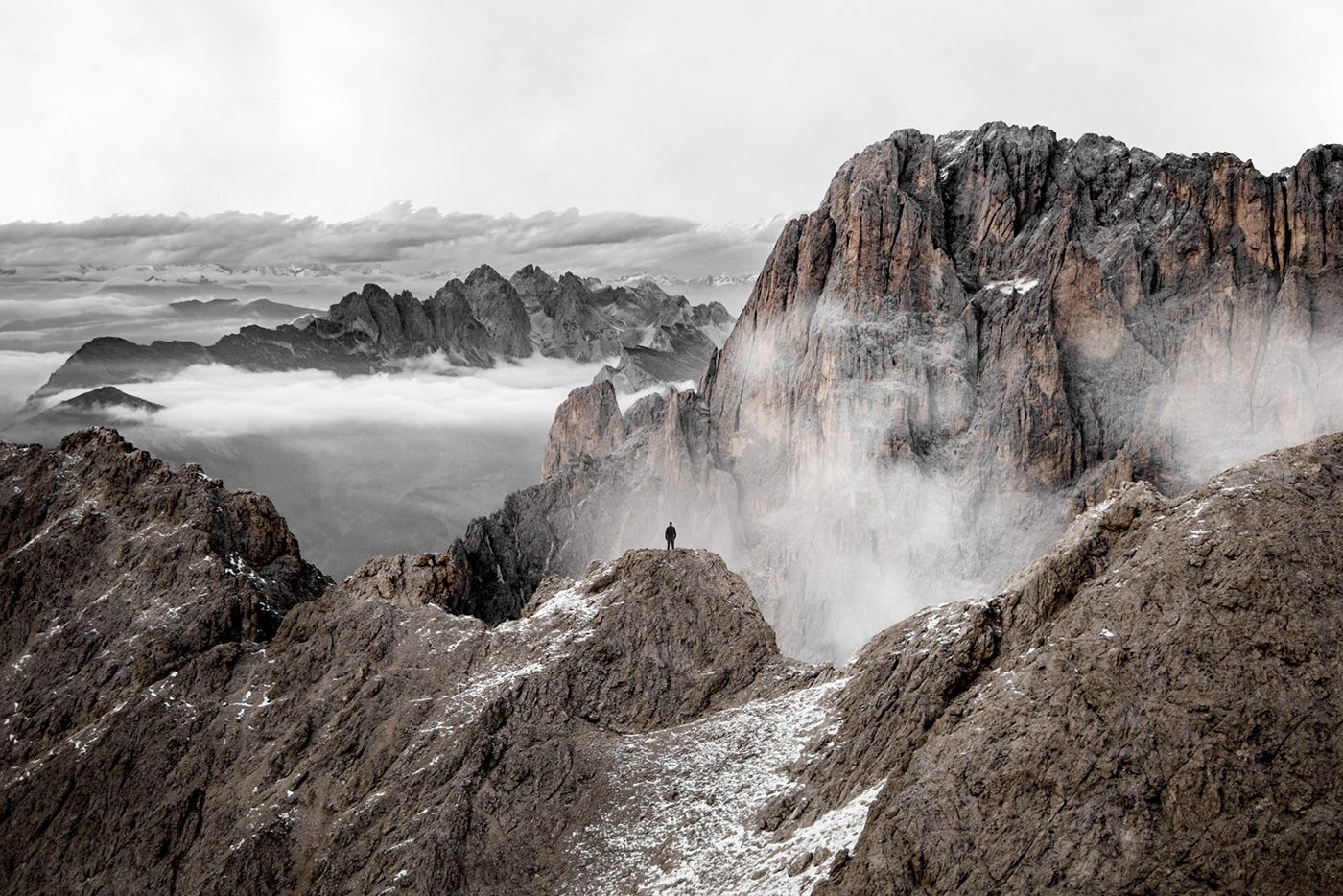
P E R A T III by Gustav Willeit
”The mountains, depicted in their architecture of incredible variants and infinite chromatic shades, unveil another essential yet invisible element: silence – the kind of silence inviting the viewer to listen to it. This silence is not disturbed by the presence of the human figure, which is placed in these landscapes like an attempt to present a familiar and graspable element. Yet the effect is quite the contrary: the human figure is not reassuring but escapes reason by raising a feeling of senselessness and impotence.”

John and Yoko learned as they went along, searching the wisdom of the centuries for guidance, 1969. By Gerry Deiter.
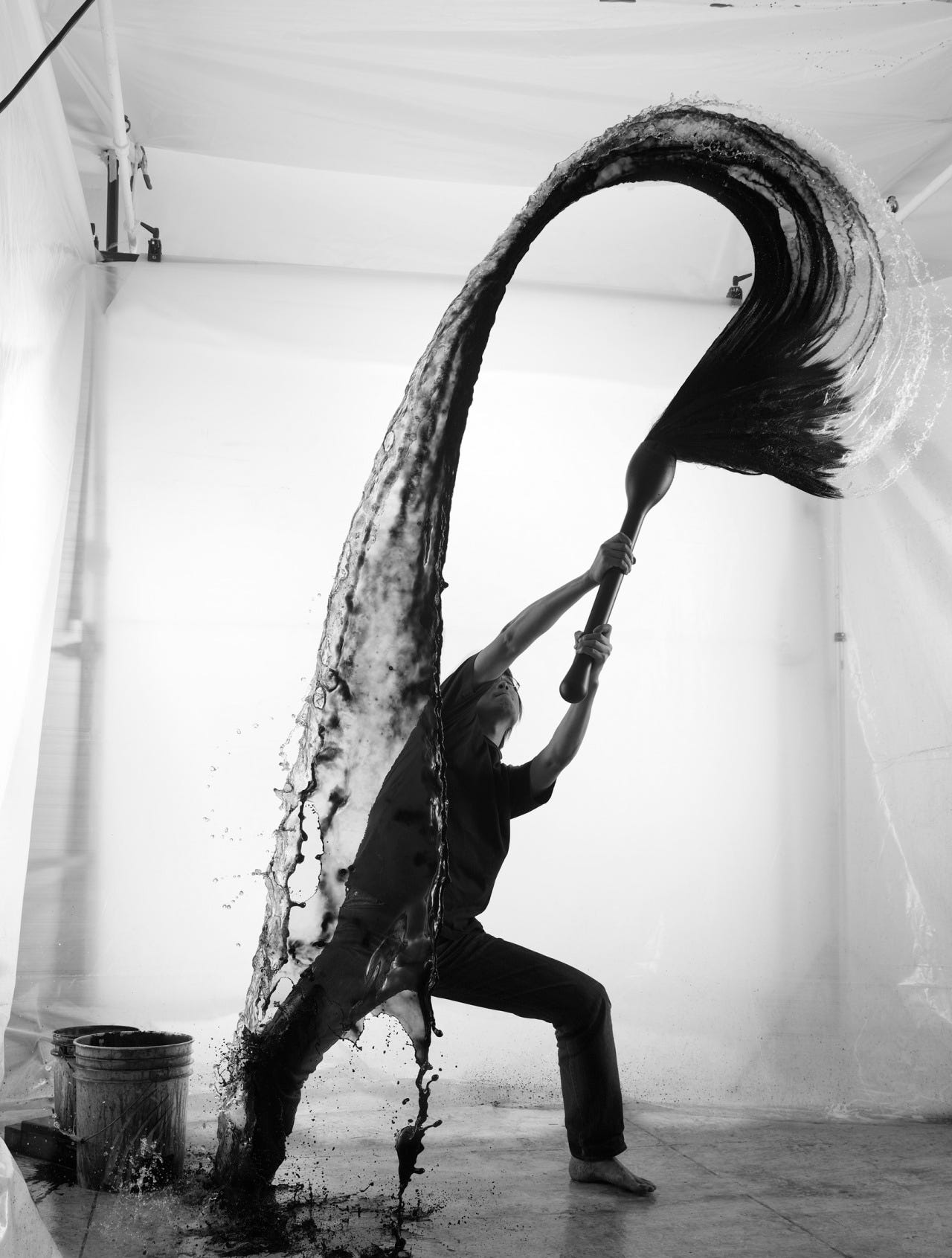
Japanese artist Shinichi Maruyama working on his “Kusho” series, which represents the interplay of black ink and water. He exemplifies the Japanese concept of wabi-sabi–the beauty of things imperfect, impermanent, and incomplete. In his work, he captures the underlying principle of energetic interactions between forms. The artist first started halting the passage of time through images of suspended liquids forms intending to collide in mid-air.
A R C H I T E C T U R E
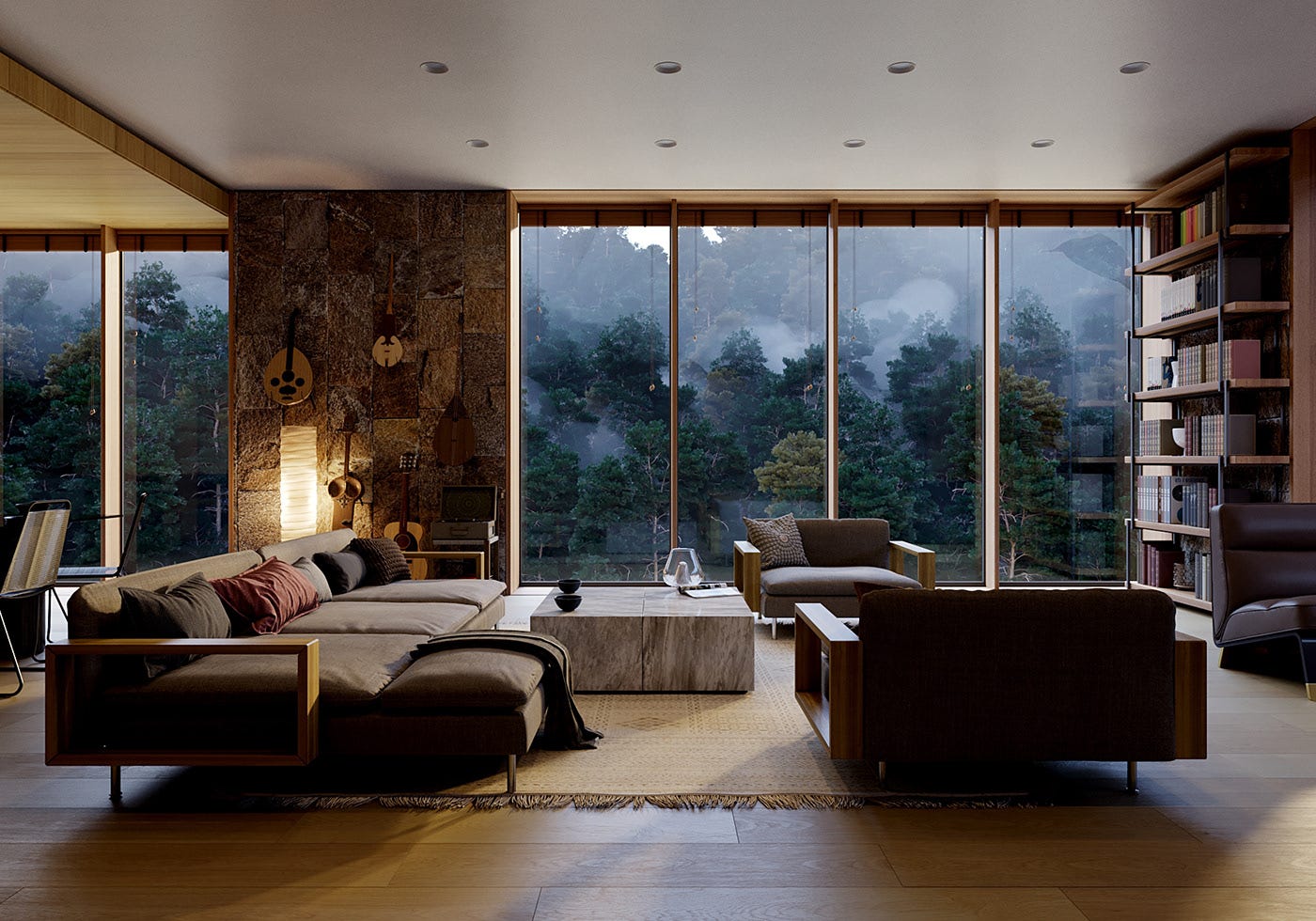
The layout of this apartment, located not far from KOROSTIV, was designed in such a way as to create one common space with separate elements. Indeed the space feels a part of the broader forest outside. Once inside, it literally feels like you’re inside a tree’s trunk. What a beautiful place to escape to. le sigh.

Vanke Future Town Pavillion in Xuzhou by Continuation Studio founded by Fan jiujiang and Zhai Wenting in 2015. The continuation of fluidity and transparency permeates the structure as it becomes one with the pond beneath it.
W O R D S

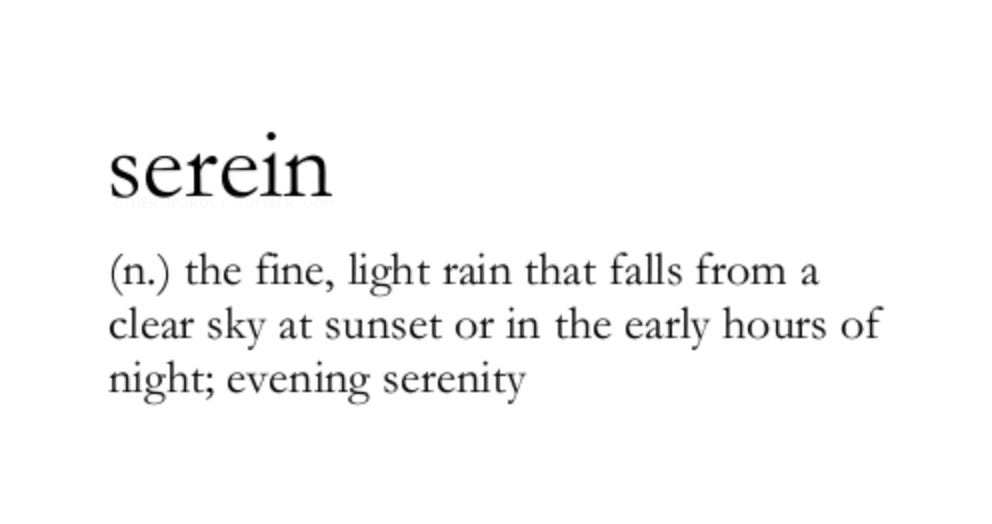
stay playful,
Patricia
Thank you for being part of amor fati today. I have a full-time job as a product manager but curate this newsletter in my free time as a labor of love. If you’re enjoying it and want to express your appreciation, please feel free to spread the word, buy me a coffee, or lmk your thoughts/feedback ☕️
I also write bi-weekly at Wellness Wisdom - a newsletter covering the mental health tech space + best resources to support your internal space.

Who’s behind this newsletter?
Patricia is a curious human, product manager, virtual librarian, and carer of souls. Reach me on Twitter or LinkedIn.



